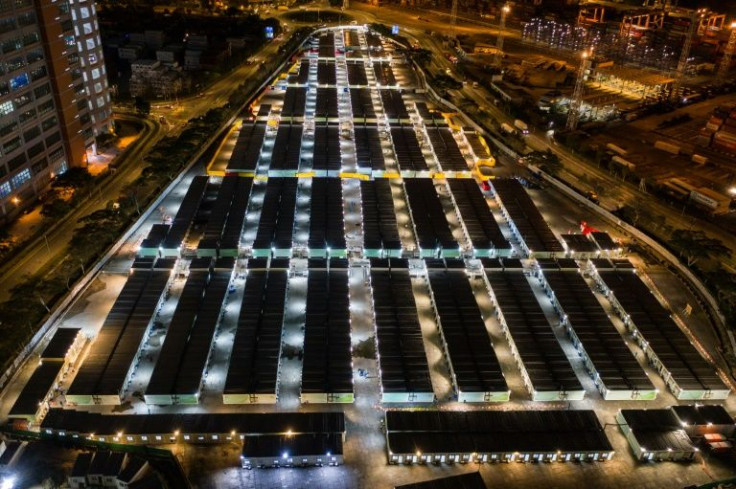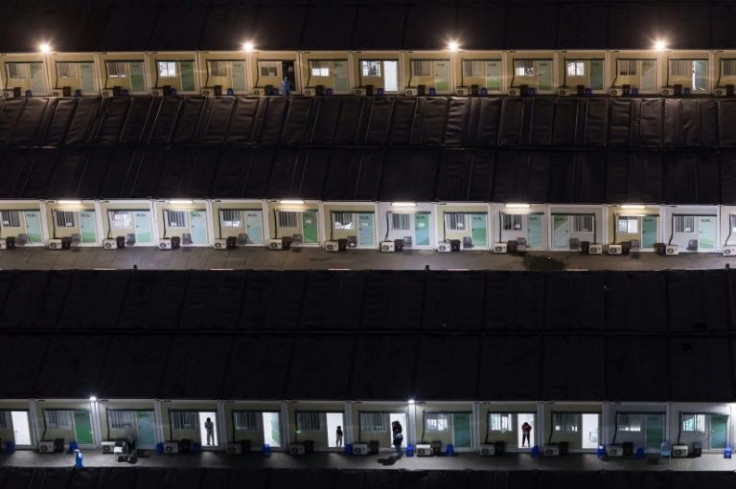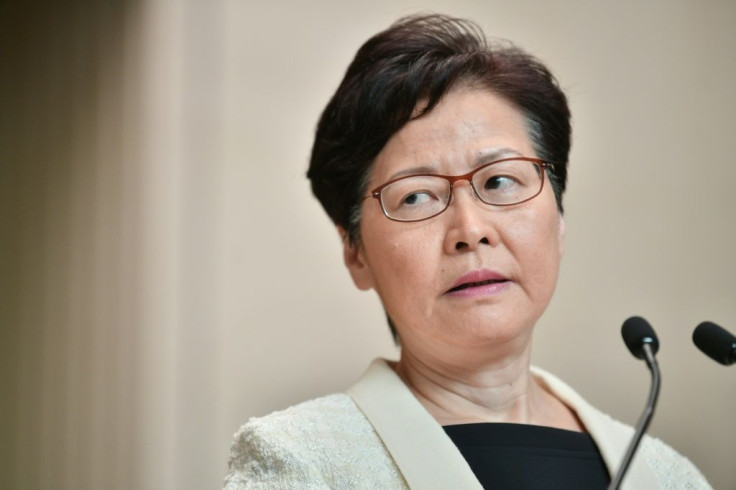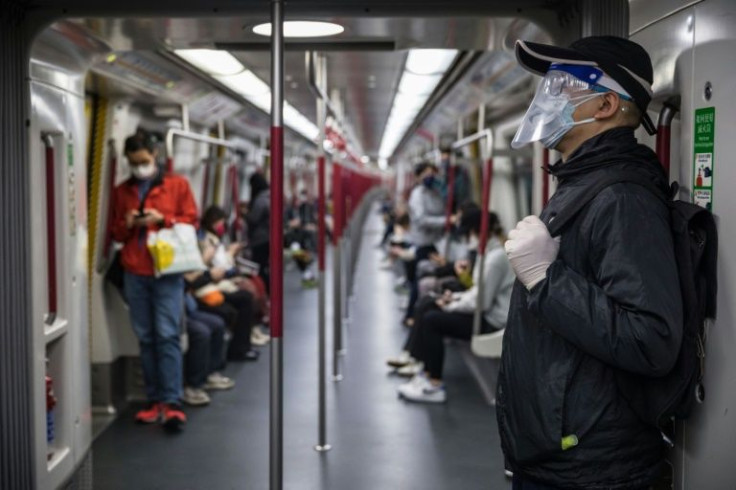Mandatory Hong Kong Covid Testing 'Not A Priority': City Leader
Hong Kong's leader said Wednesday that mandatory coronavirus testing was no longer a priority after plans for mass screening of all 7.4 million residents and an accompanying citywide lockdown triggered panic.
Wednesday's announcement by Carrie Lam comes after weeks of uncertainty and mixed messages from the government, fuelling panic-buying sprees by residents snapping up vegetables, canned goods, frozen foods, and even over-the-counter medicine such as paracetamol, and testing kits.

Thousands of foreign and Hong Kong residents have also fled the city, as the United States issued a travel advisory warning against visiting and cited the risk of children being separated from parents in Covid isolation units.
But Wednesday's announcement rolls back a late February proposal by Lam that three rounds of compulsory testing would happen, and authorities saying it would be carried out alongside a citywide lockdown and movement restrictions.
"What we are doing now is planning and preparation but (mass testing) is not a priority for now," she said, adding that the plan for universal testing has not been nixed.

"If we do it, it must be for the greatest benefit of Hong Kong," Lam said.
Health experts have criticised Lam's administration for unclear messaging on where Covid-positive patients should go, the city's low vaccination rates among the elderly and a lack of preparation for medical staffing and facilities.

The city's top medical adviser also came out last week to express doubts over the effectiveness of mass testing, especially since the city currently lacks sufficient isolation wards.
Lam said Wednesday she was aware of the criticism, but defended her administration's "adjustments".
"Policies and measures need to be adjusted as the situation develops," she said. "Some people may say such adjustments are capricious -- that's a matter of opinions."

Despite two years of hard-won breathing room thanks to following the mainland's zero-Covid strategy, Hong Kong is now the throes of its worst-ever coronavirus outbreak fuelled by the extremely contagious Omicron variant.
It has recorded more than half a million cases since the Omicron-fuelled fifth wave kicked off in 2022, exponentially outstripping the total number of 12,000 infections the city saw in the pandemic's first two years.
It also now has one of the world's highest fatality rates in the developed world, the majority of deaths among its vaccine-hesitant elderly.
Elderly carehomes have been particularly hard-hit, as staff are downed with the virus, and Covid-positive patients are pushed away from overcrowded hospital wards.
Lam said Wednesday that care home residents across Hong Kong would receive at least one Covid jab by March 18.
The government will also provide more support for staff at care homes, providing hotels and cars for a "closed-circle management" to reduce their risk of being infected in their communities.
So far, government data shows that fewer than 60 percent of people aged 70-79 and only 32 percent of the above-80s have received two jabs.
A University of Hong Kong survey estimated that about 1.8 million residents have been infected so far, about one in four of the population.
© Copyright AFP {{Year}}. All rights reserved.





















